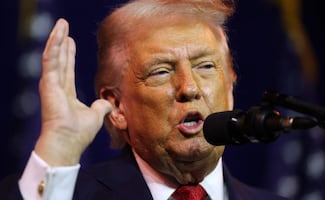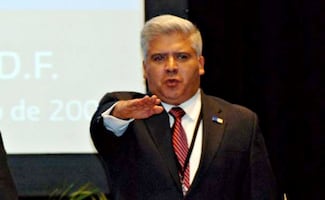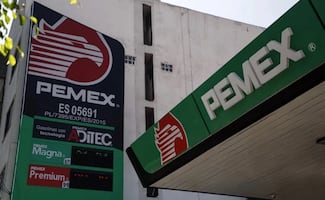Más Información

Mármol con metanfetamina y millones ocultos; las claves de la mayor red de droga en Europa ligada al Cártel de Sinaloa

Trump ordena retiro de EU de 66 organizaciones internacionales; "ya no sirven a los intereses nacionales", señala

Petro conversa con Delcy Rodríguez y propone diálogo tripartito con EU; busca contener crisis en Venezuela

Trump anuncia que Venezuela comprará sólo productos fabricados en EU; inversión incluirá alimentos, medicinas y equipo médico
Mexico and 11 other Pacific Rim countries have agreed to an ambitious and contentious trade pact that cuts trade barriers, sets labor and environmental standards and protects multinational corporations' intellectual property.
The agreement on the Trans Pacific Partnership (TPP), designed to encourage trade between the United States, Australia, Brunei, Canada, Chile, Japan, Malaysia, Mexico, New Zealand, Peru, Singapore and Vietnam was reached Monday after marathon negotiating sessions in Atlanta through the weekend.
Mexico's Economy Minister Ildefonso Guajardo said that the TPP opens new business opportunities for Mexico in six Asia-Pacific markets, a region expected to have the largest growth over the next 25 years, and strengthens production chains of Mexico, the United States and Canada, contributing to the goal of turning North America into the world's most competitive region.
He added that the agreement will become a negotiation model for future trade agreements and that the 11 TPP partners represent 72% of Mexico's foreign trade and are the origin of 55% of the investment received by Mexico since 1999.
Separately, the United States, Mexico, Canada and Japan agreed rules governing the auto trade that dictate how much of a vehicle must be made within the TPP region in order to qualify for duty-free status.
The North American Free Trade Agreement between Canada, the United States and Mexico mandates that vehicles have a local content of 62.5 percent. The way that rule is implemented means that just over half of a vehicle needs to be manufactured locally. It has been credited with driving a boom in auto-related in investment in Mexico.
The TPP would give Japan's automakers, led by Toyota MotorCorp, a freer hand to buy parts from Asia for vehicles sold in the United States but sets long phase-out periods for U.S. tariffs on Japanese cars and light trucks.
With information from Reuters and AP
Noticias según tus intereses
[Publicidad]
[Publicidad]










